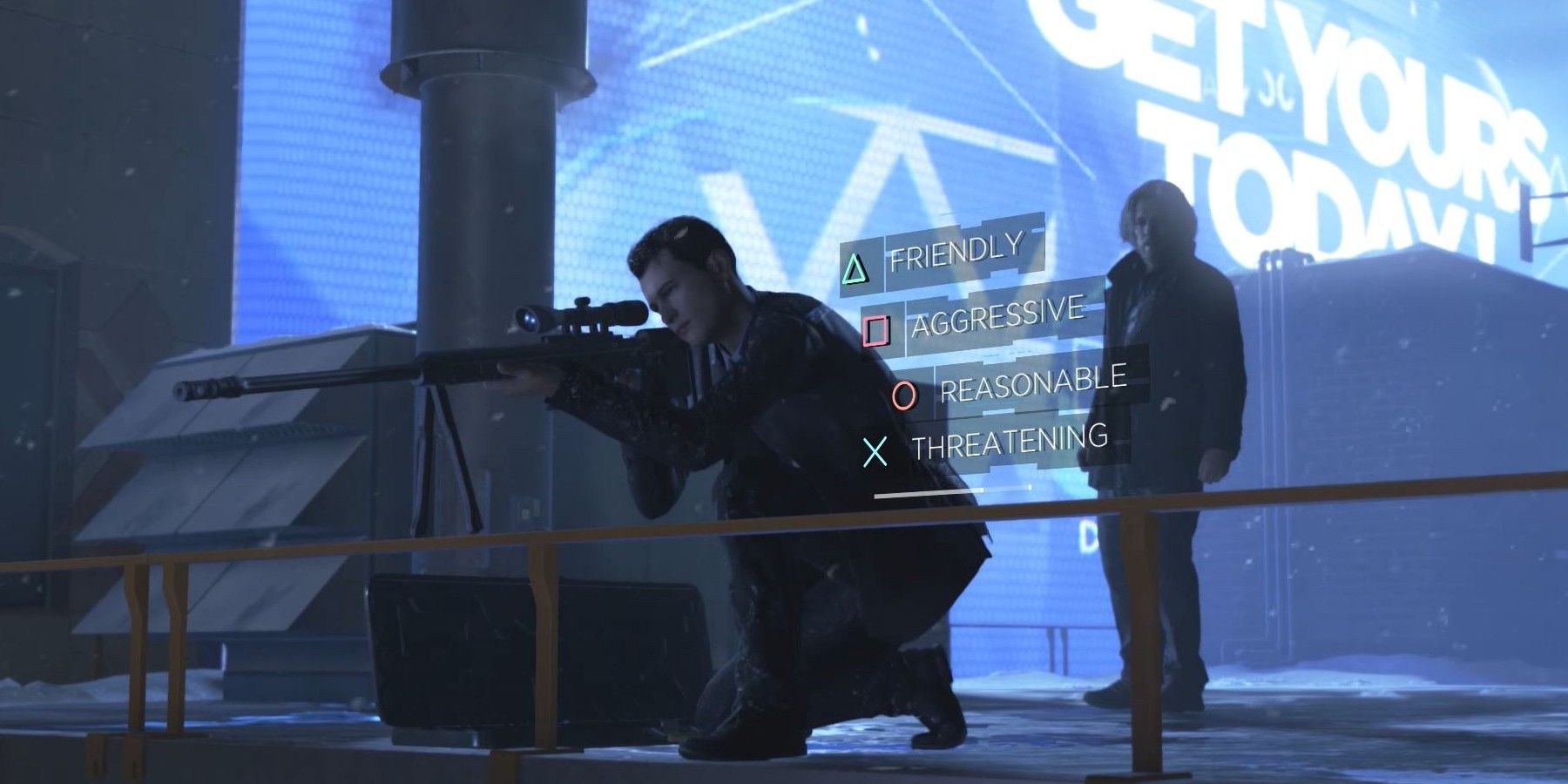Video game trophies and achievements have conditioned many gamers to strive for excellence, and in most cases the rarest accomplishments are often the most difficult. There is an understandable desire to be part of the elite of gaming, to see that only a small percentage of other gamers attained the same victory. Detroit: Become Human, and other recent games from developer Quantic Dream, change the paradigm, as the least chosen options are often the most disastrous and irrational within the games’ fiction. These story-based titles sometimes incentivize taking the narrative in strange, typically undesirable directions, simply to take the road less-traveled and to be part of a more niche group.
Click the button below to start this article in quick view.
The psychological appeal of a PSN trophy or Xbox or Steam achievement in a traditional challenge-based game is easy enough to understand. If less than three percent of those who have played a particular game have managed to beat it, the victory carries added weight. When these notices flash onscreen, the player can take pride not just in their skill at the game, but in the knowledge that it is a rare thing, one that the statistical majority of players have been unable to achieve, or perhaps gave up on obtaining.
Detroit: Become Human, as well as prior Quantic Dream titles like Beyond: Two Souls and Heavy Rain, are cinematic adventure game experiences with branching stories that allow the player to guide and shape the course of the narrative by controlling character decisions and actions. Detroit is arguably the most ambitious of the developer’s projects thus far, with more than 40 ending variations. Much like the Life is Strange series and Tell Me Why, at the end of each chapter in Detroit, the game will compare the player’s choice with those of others who have completed the chapter, letting them know where their choices fall relative to the majority.
Detroit: Become Human Allows Bleak, Messy Outcomes
This is where the achievement mindset can lead gamers to intentionally play the game in an irrational way, to ensure their choices are more unique, and not following the flow of the plurality of players. The contrarian mindset can cause gamers to not act based on what they think the most intuitive or effective choice is – and not based on an attempt to role-play the character they portray – but simply to get into those smaller percentage groups.
There are pros and cons to this, particularly with Detroit, where the game is designed to always advance the story, regardless of choices. Detroit players might make a decision that leads to the death of Kara, one of the game’s three protagonists, causing them to miss nearly a third of the game’s story going forward. They might repeatedly fail at quick time events, leading not to the end of the game, but to a bleaker outcome and negative reactions from NPCs. The fact that the game allows for these outcomes and continues the narrative instead of forcing the player to replay sections to hit the optimal ending is noteworthy. Not every story needs to have a perfect outcome, and all the messy possibilities Detroit allows for makes it stand out.
Contrarian Minded Players Will See Detroit: Become Human’s Starker Paths
The fact that the developers of Detroit created so many branches for the story is an impressive feat in itself. If seeking to occupy the smallest percentage group possible leads new players to take Detroit‘s story in strange directions, that might be a good thing, as they are seeing branches that relatively few others have had an opportunity to witness. The essence of drama is conflict. Detroit: Become Human is not a challenge-based game, where the purpose is to overcome a conflict through skill and system mastery. The drama is the entire purpose, the experiment Quantic Dream’s games and others continue to advance in bridging the gap between single-script cinema and branching-choice narrative gaming.
Making poorer choices might lead to higher stakes, or worse outcomes, but the end result is drama, so from that perspective, the player has still met a win condition, of sorts. By aiming for the road less traveled in Detroit: Become Human, these intentional outliers see parts of the story that others miss, and they might have a richer experience for having done so.
About The Author
